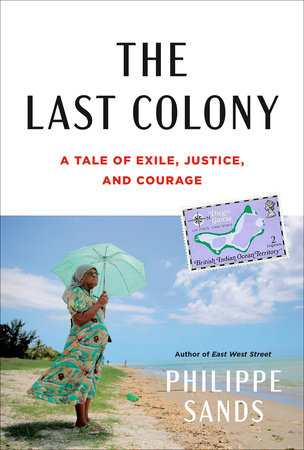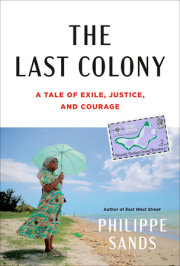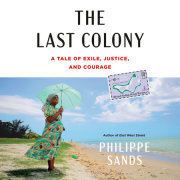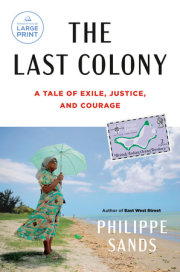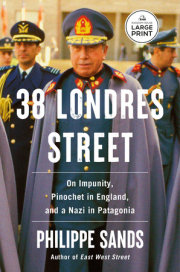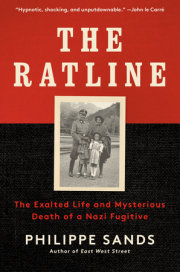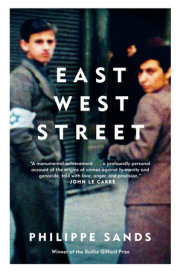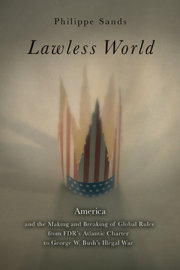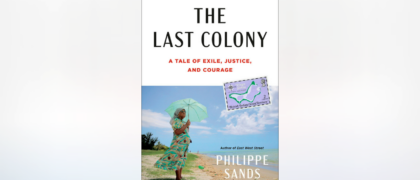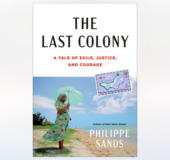Part One
1945
“The individual human being . . . is the ultimate unit of all law.”
—Hersch Lauterpacht, 1943
To answer the question posed by Madame Elysé it is necessaryto go back to February 1945 and a winter’s day in Cleveland,Ohio. Standing at another podium, Ralph Bunche delivered apassionate lecture to the city’s Council on World Affairs, on colo-nialism and its future. Bunche, a US State Department official, wasa Black American and a distinguished scholar of British and Frenchadministration in Africa. His lecture offered a robust response to anargument recently put to him by Arthur Creech Jones, the BritishLabour Party’s expert on colonialism. Given a choice between slowprogress under British domination, or freedom under new inter-national rules, Creech Jones explained, the colonised would optfor the former. And, he added, Bunche should apply his dangerousideas on decolonisation to himself and to the fifteen million Blackpeople of the United States.
“The modern world has come tothe realisation that there is a greatmoral issue involved in the perpetu-ation of the colonial system,” Dr.Bunche declared in response. Is onepeople entitled to rule permanentlyover another? No. In the comingweeks he would have a chance to turnthis idea into action, in negotiatinga new international agreement, theCharter that would create the UnitedNations organisation and begin the formal process of ending colonialism. Bunche spoke with author-ity, as the member of the US delegation negotiating the Charter,charged with reaching agreement on decolonisation. A few weekslater, in April 1945, as work on the international agreement beganin earnest at the San Francisco Opera House, he wrote to his wife.“I did feel a bit proud this afternoon, at being the only Negro whosat on the first floor.”
The drafting process lasted eight weeks, the result reflected inChapter XI of the UN Charter, a “Declaration Regarding Non-Self-Governing Territories.” Possibly the “most far-reaching dec-laration on colonial history ever written,” one delegate called it.Bunche recognised the limits of his efforts, expressing the hopethat the new rules would be taken forward and implemented ingood faith. He could not know that his work would unlock a doorthrough which Madame Elysé would pass, many decades later, ona journey from Chagos to The Hague.
Newfoundland
The origins of Chapter XI of the UN Charter and its commit-ment to decolonisation may be traced back to earlier revolutionarymoments, in America and France and other places, to philosophicaland political writings on the relationship between a person and thelarger community of which they form a part. Such ideas promptedVladimir Ilyich Lenin to publish three articles on “The Right ofNations to Self-Determination,” a call to end external domination.Four years later, American President Woodrow Wilson addressedthe US Congress with similar ideas, touching on the interests ofcolonised populations. One of his Fourteen Points invoked theprinciple of “autonomous development” for different peoples ofthe Austro-Hungarian and Ottoman empires, the idea that eachnational group might have rights of its own. Such ideas influencedother thinkers, like W.E.B. Du Bois and Eliézer Cadet, and the Universal Negro Improvement Association founded by MarcusGarvey. In the post-war years, they pushed for the “right of self-determination” to be “applied to Africans and to every Europeancolony where the African race predominates,” and for Germany’sAfrican colonies to be returned to “the natives.”
Two decades later, in 1941, as war raged once more, Germanforces headed into Soviet territory and the lands of north Africa.They threatened British control of Egypt and the Suez Canal, theroute to Mauritius, India and other colonial domains. In the east,Japan posed its own threat to British, Dutch and French colonies.Not yet engaged in the war, President Franklin Delano Rooseveltused this moment to propose a meeting with British Prime Min-ister Winston Churchill. “Somewhere in the Atlantic,” Churchillwhispered, a secret location.
The two met on Saturday, 9 August 1941, on board the USSAugusta, moored in Little Placentia Sound, off the coast of New-foundland, a British colony. The following day, they discussed thedraft of a joint statement they might issue. Over dinner, Roosevelt’sson, Captain Elliot Roosevelt of the US Army Air Force, observeda “highly charged” quarrel between FDR and Churchill, on colo-nialism and the British Empire. Roosevelt provoked Churchill, tell-ing him he wanted to end preferential trade and other economicarrangements for Britain’s colonies.
“England does not propose for a moment to lose its favouredposition among the British Dominions,” Churchill responded, irri-tated. Roosevelt countered: real peace required the “developmentof backward countries,” and, to confront fascism, the two coun-tries must work together to free people from “a backward colonialpolicy.”
Churchill’s effort to change the subject was unsuccessful. TheUnited States would not underwrite colonialism, Roosevelt contin-ued, and would support “popular movements” for independenceand self-government. Looking back, to the Cold War years that followed, to developments in Chile, Nicaragua, Iraq and Afghanistan,among others, the charge of hypocrisy can easily be levelled againstthe US. Nevertheless, Roosevelt hoped to replace British colonial-ism with a New American Century, and one of his ideas would betaken forward as the “principle of self-determination.”
Robust views were exchanged over several days. The Ameri-cans arrived with a draft text, but Roosevelt did not share it withChurchill, fearing it would be rejected outright. Better to allowthe British to prepare a draft of their own, to which the Americanscould respond. The ploy worked. The first draft of the “AtlanticCharter,” Churchill would say, was “a British production cast in myown words.”
He walked straight into the trap laid by Roosevelt.
The draft was reworked, words added or changed, or removed.Sentences were inserted, new points raised. After three days, thetwo agreed on a short text that set out their hopes for a “betterfuture for the world.” The ideas included respect for territory; moreeconomic cooperation; an end to trade preferences for the colonies;individual freedoms; and limits on the use of military force.
The Atlantic Charter was a single, typewritten page consistingof eight brief paragraphs. In due course, paragraph three wouldbecome crucial for Mauritius and Madame Elysé, the words thatcommitted Britain and America to “respect the right of all peoplesto choose the form of government under which they will live.” Theidea was revolutionary, invoking the notion that sovereign rightsand self-government would be “restored to those who have beenforcibly deprived of them.” Churchill wrote the words withoutthinking through how they might be interpreted and applied.
The Atlantic Charter was widely reported in the press. A state-ment of intentions, The New Yorker magazine noted, and a prettygood one, even if open to interpretation. Roosevelt saw the Charteras announcing an end to empire, taking forward Wilson’s FourteenPoints, a tool that promised people in the east of Europe “their ownnation-state.”
Churchill read the text differently. No, he assured the House ofCommons, the Atlantic Charter did not imply an end to Britain’scolonies—its vital third paragraph was only for those who lived“under the Nazi yoke.” Those who owed allegiance to the Crown,in India, Burma, Mauritius and other parts of the British Empire,would not be subject to the commitment expressed in the thirdparagraph.
Churchill’s reading was not so widely shared. Across Africa,many read the words of the third paragraph as applying to themand the colonies of their continent, a commitment for the “African-ization” of governments. In South Africa, a young Nelson Mandelasaw the words of the Atlantic Charter not as empty promises, butas offering “full citizenship,” the right to land and an end to “alldiscriminating legislation.”
The world of international law was—and still is—conservativeand cautious, but once words are agreed they often take on a life oftheir own. A few months after the Atlantic Charter was adopted,the third paragraph was picked up and its sentiment insertedinto the “Declaration by the United Nations,” adopted in Wash-ington DC in January 1942. Twenty-six countries agreed to joinforces against Germany and Japan, whose attack on Pearl Harbor,a month earlier, had prompted the Americans to enter the war. TheSoviet Union and China were among the countries that embracedthe Atlantic Charter’s commitment to self-government, and calledfor the preservation of “human rights and justice in their own landsas well as in other lands.”
Within a few years, some fifty countries were supporting the1942 Declaration, with four from Africa: Egypt, Ethiopia, Liberiaand South Africa. The commitment to decolonisation had takenoff, even if the modalities were uncertain.
Copyright © 2023 by Philippe Sands. All rights reserved. No part of this excerpt may be reproduced or reprinted without permission in writing from the publisher.

